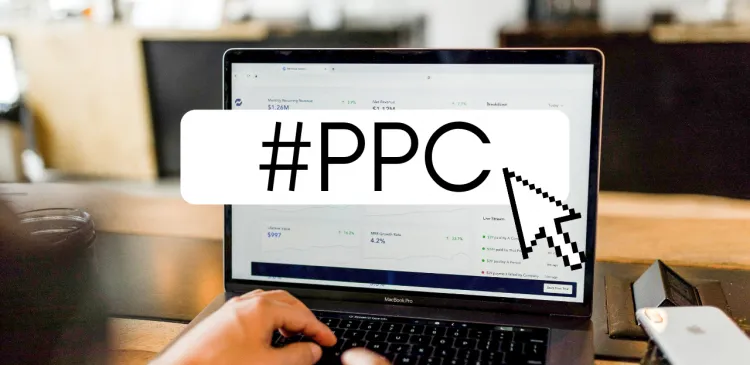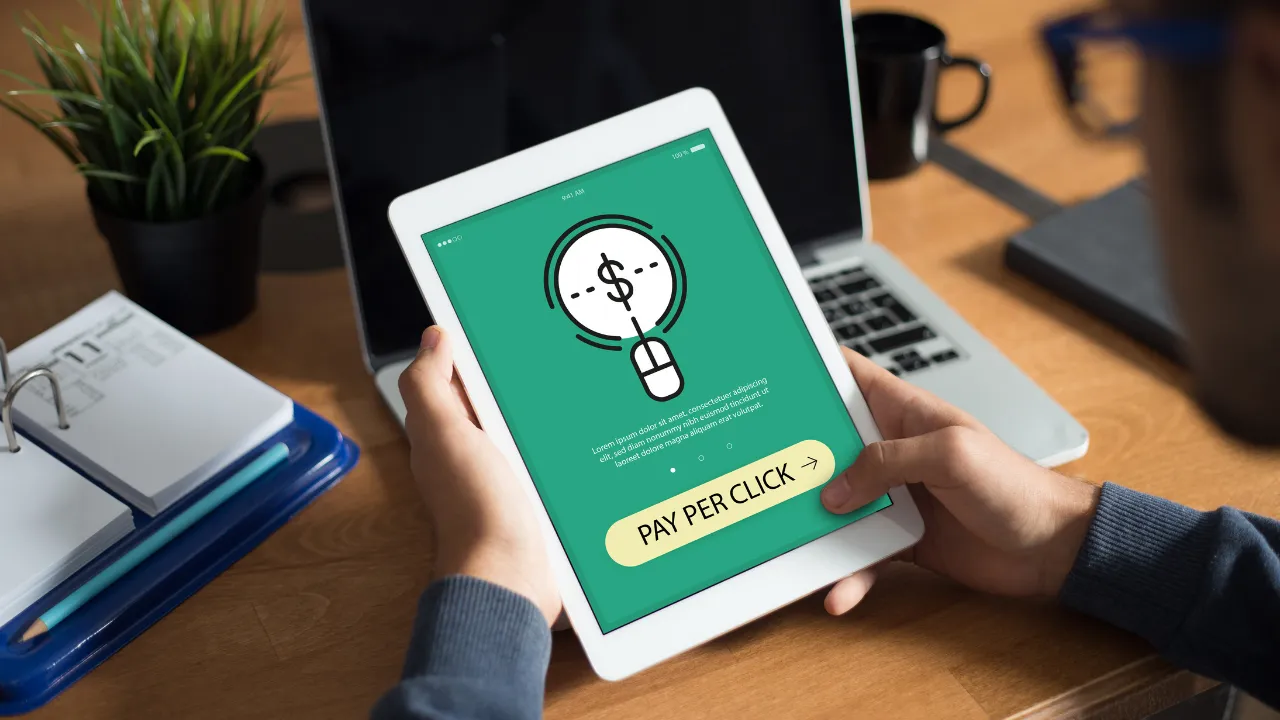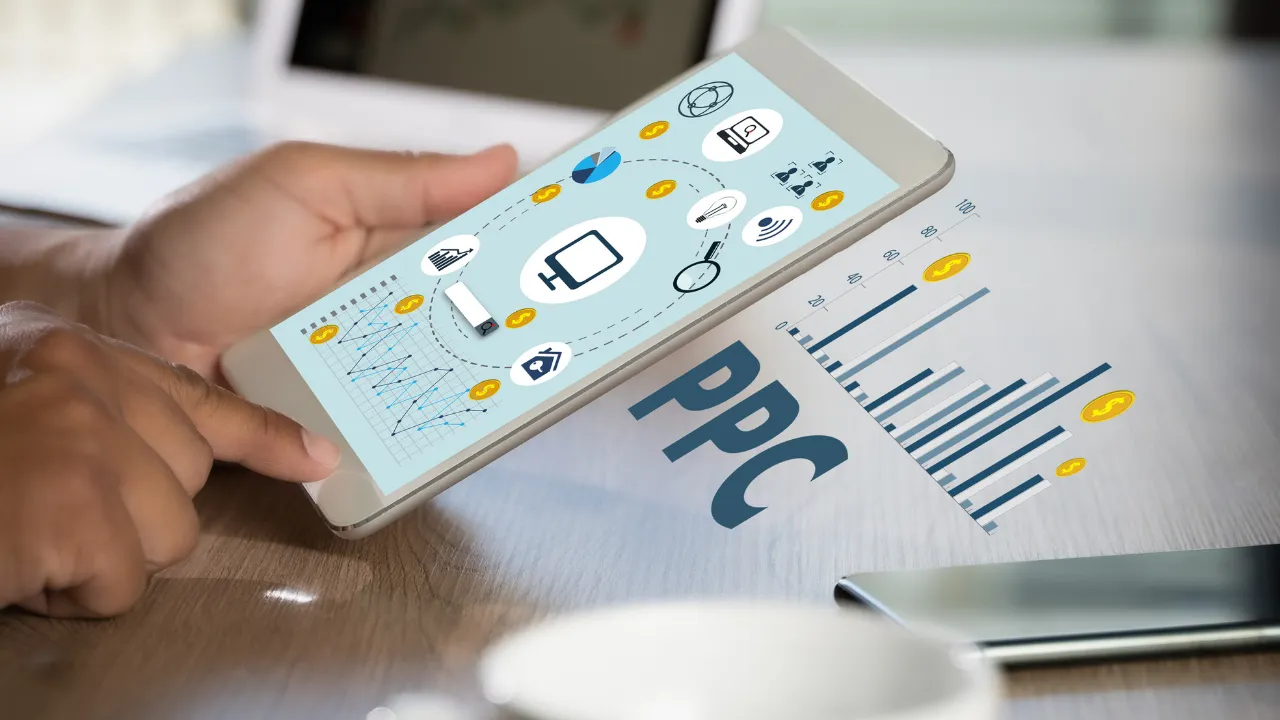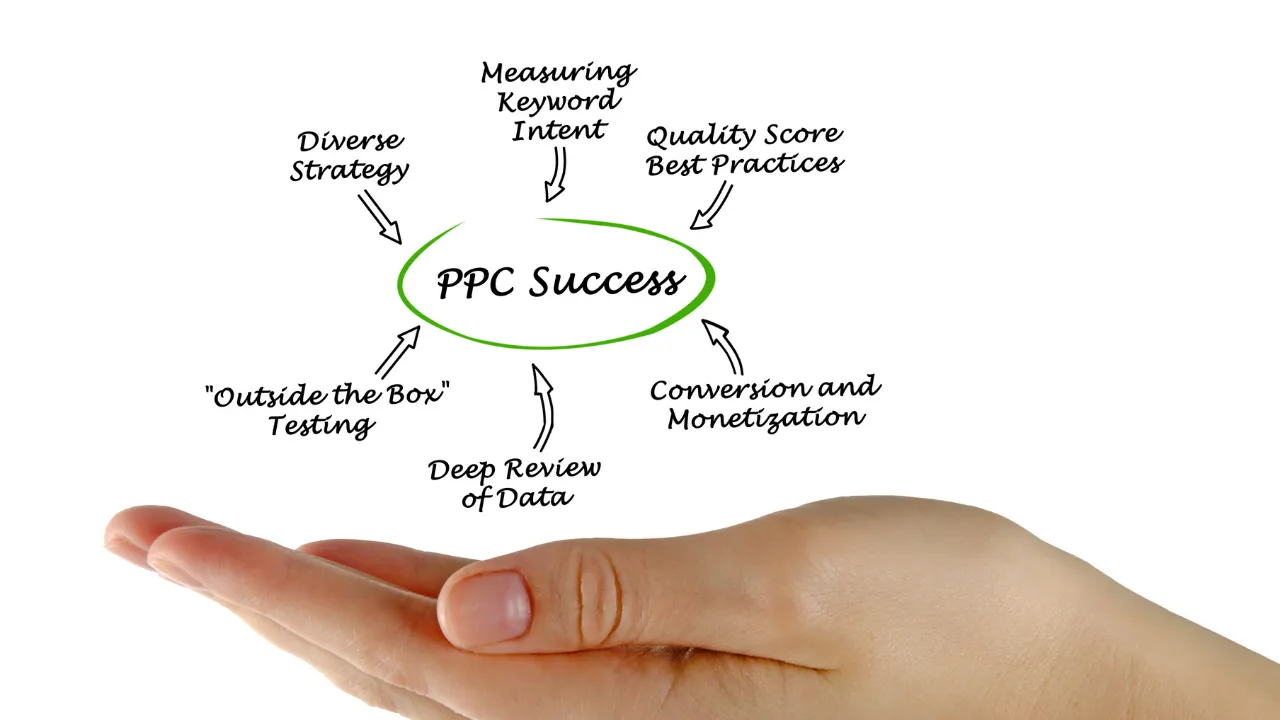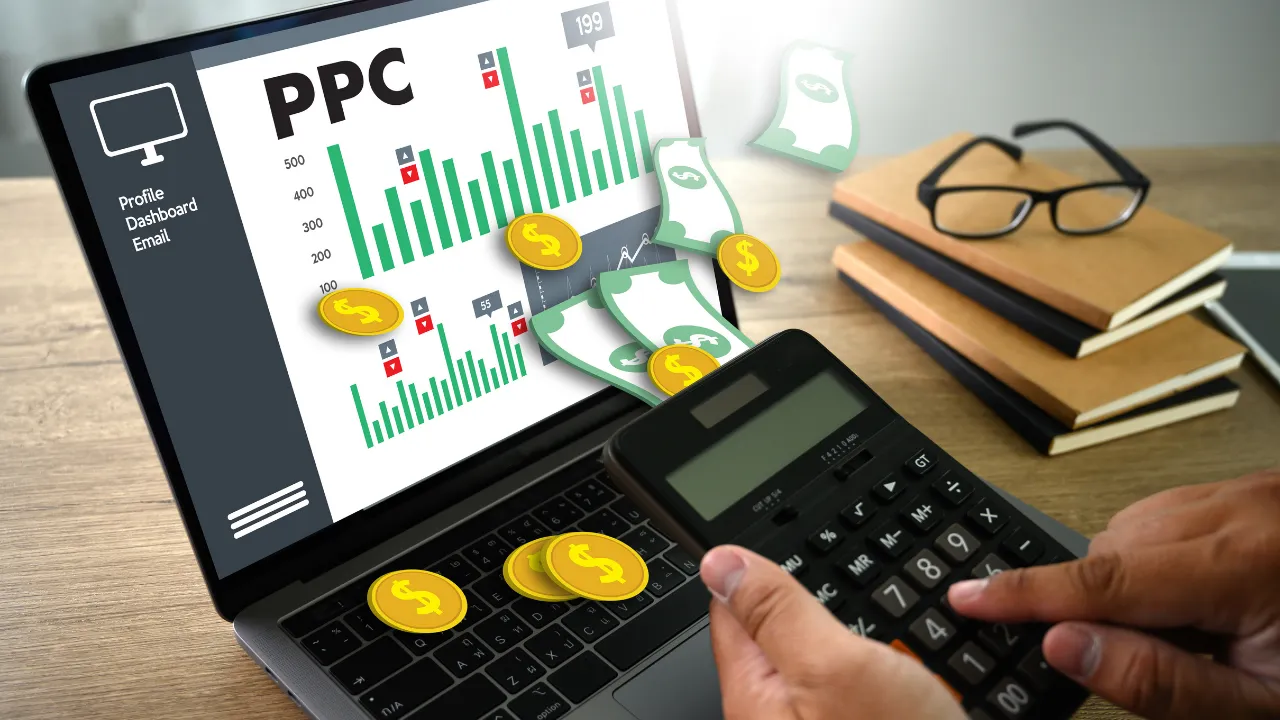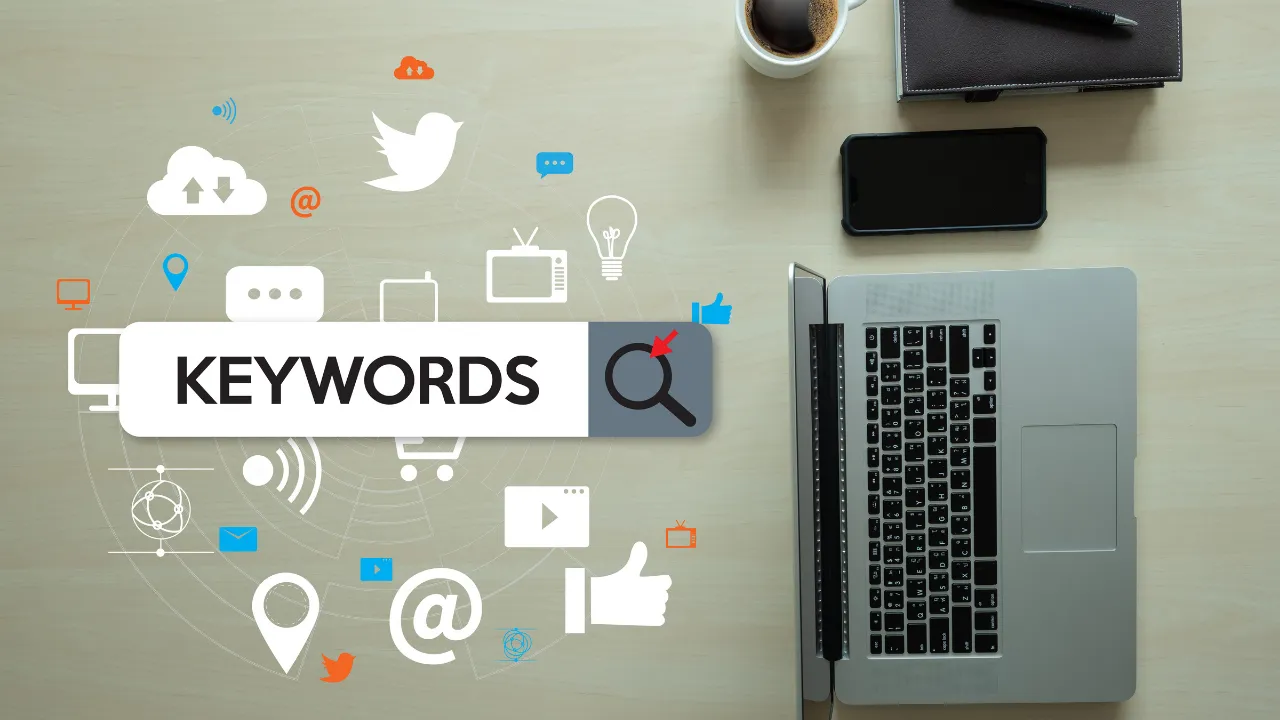Business owners are always looking for new ways to build their brands and funnel more clients. When a market matures, you are forced to compete on your merits rather than on marginal technical competency. This means that the more online tools competitors become familiar with, the more you have to increase proficiency in what you do.
For instance, when social media networks such as Facebook and Twitter first appeared on the scene, fast-acting entrepreneurs rushed to position themselves and took advantage of such platforms. While there is constant innovation occurring in the digital marketing space, mastering online advertising is a key competency to have.
Pay-Per-Click advertising, also known as PPC, is an important component of any online marketing strategy. Knowing how to take your marketing budget and turn it into sales in a predictable way will help you reach your goals. It’s a powerful advertising model.
What is PPC?
Pay-Per-Click is an internet marketing model wherein advertisers pay a fee whenever one of their ads gets clicked. Sponsored results or paid search ad is a click model called paid advertising.
In other words, it’s like a billboard for which you pay only when a passerby sees it.
One of the most popular forms of PPC is search engine advertising. It allows the advertisers to bid for ad placement in the sponsored links of a search engine whenever someone searches on a keyword/s that is/are related to their products or services.
For instance, if you bid on the keyword “PPC tools,” your ad might show up in the top spot of Google’s results page. Every time your ad gets clicked, sending the visitor to your site, you need to pay a small fee to the search engine. If you will harness PPC advertising’s advantages correctly, the fee is just a small price that you need to pay, because the visit is worth more than the amount you’ve paid for it.
In other words, if you pay, say, $4 for each click, but the click results in a $400 sale, then you’ve made a significant profit.
PPC is associated with major search engines like Google where ads appear in their results. Google’s Ads is the search juggernauts advertising platform. Formerly known as Google AdWords, the ad network allows businesses to place their ads in search results as well as on websites across the internet.
While Google is the biggest player in the space, Bing also has a significant market share worthy of looking into. For instance, the Bing Ads platform enjoys close to a 25% piece of the UK search engine marketing.
What are the benefits of Pay-Per-Click advertising?
PPC advertising has become an important marketing arsenal for many business owners.
In a globally competitive environment, the ability to maintain flexibility in your targeting is essential. Pay-Per-Click advertising is a powerful tool in the right hands. If utilized well, it’s a tool that guarantees to place your ads on the first page of search engine results.
Measurability
Compared to conventional methods of advertising, PPC offers a high level of measurability. Google Ads (Google AdWords) records every action and allows you to modify your campaign to achieve the best results. There is very little guesswork and this translates well to your bottom line.
Tracking
Not only is the Google Ads platform good at measuring statistics but it also provides the means for detailed tracking. Particularly with regards to conversions, PPC will associate a certain path with the user’s actions. By knowing how viewers of your ads respond, you can tailor them for optimal productivity.
Immediate Results
Getting ranked highly in the search engine results pages can take months or even up to a year. This process, known as Search Engine Optimization (SEO), is where you work on your website so that Google ranks it highly. It is a process that cannot be expedited and therefore new website owners cannot immediately benefit from it.
With search marketing, the minute you start running a campaign, your ads will start appearing in front of interested users. As long as you meet certain guidelines, there is no delay. Search engine users on Google, Bing from Microsoft or Yahoo Search will immediately see your ads when searching for keywords relating to your website.
We can open a Google Ads (AdWords) account and start serving your ads to potential customers in minutes. This is especially useful for new website owners whose website hasn’t had the time to rank.
Not Dependent on SEO
Depending on SEO for your website’s traffic can be risky. Google frequently makes updates to its algorithms. These updates can catch your website in the crossfire. Small changes to Google’s SEO criteria may cause a website to lose its rankings and fall behind its competition.
With PPC, you don’t need to worry about this. your ads can always appear in front of prospects regardless of how well your website ranks.
How does PPC work?
Search marketing works as a sort of auction. You set up your campaign and its specifications and you bid for keywords.
If, for example, you have a local brick-laying business in Norfolk, VA, you can target people and drive traffic in that area. Using a keyword such as ‘Norfolk bricklayer’ will enter this phrase into an auction against competitors bidding against you.
Depending on how well you design your ad campaign and how relevant your website is to the content of your ad, you receive a Quality Score. This metric is used by Google (AdWords) to rank your ads against all other competing ads.
Your ads are served in Google’s search results page, depending on how well you perform. If your ad appeals to a user, they will click on it. Google charges you for that click and you get the opportunity to sell your products on your website.
The page on your website that the user arrives at upon clicking the ad is called a landing page. This page should be closely related to the content that is in your ad.
Impression
When a user performs a search on Google search, Facebook, or Yahoo and your ad appears, this is called an impression.
Click
If the user finds your ad appealing and clicks on it for more information, the Google Ads or Facebook Ads platform records it as a click. Upon clicking your ad, the user is directed from the search results to your landing page.
Click-Through Rate
The Click-through rate describes the effectiveness of your ads. You calculate it by dividing the number of clicks your ad receives by the number of impressions. This gives you the percentage of users that see your ad and like it enough to click on it.
Keywords
Keywords (also called search terms) are words and phrases that you will target in our audience’s search queries. They relate closely to your niche and may include geographical buyer intent, or other attributes.
In your brick-laying example, some keywords may include: brick-laying, Norfolk bricklayers, find a bricklayer in Norfolk, and other similar terms. Targeted keywords (your keywords list) include additional info like match types.
Ad Groups
Ad groups are sub-sections of your campaign. If you have different product categories, you want to divide them into different ad groups to better target potential customers.
Again, using your example, if besides brick-laying you also do fence-building, you’ll want to create a different ad group for each service. Separating your product categories into ad groups help to build an optimized keyword list and give you better results for your search advertising and click campaign.
Before starting a PPC advertising campaign you need to consider the following questions first:
How much should you allocate for PPC advertising?
For any PPC campaign, you’ll need to pay the platform owner (Google, Facebook, Bing, etc.) for them to deliver your ads in organic search results pages. These ads will create traction whenever an online user’s search query includes or matches with your selected keyword/s.
Every time a user clicks on your ad, you will pay the current Cost-Per-Click (CPC) using your existing budget. Once your budget is fully consumed, the platform/s will no longer serve your ads. That said, it’s best to kick off your PPC advertising plan by deciding how much to spend on a daily basis, knowing that your maximum and minimum bids will affect your Ad Rank and that CPC will fluctuate.
In case you don’t know, an Ad Rank refers to where and how often your ads are served on search engines and other online platforms. If your Ad Rank is high, your ad will be served more often due to a relevant search query, and the more desirable your position on the page will be.
How to choose your PPC campaign goals?
The first thing to do when choosing your PPC goals is to determine your target audience for your campaign.
You have the liberty to choose keywords and geographic and demographic parameters to ensure that your ads will only be served to your target audience. See that your ads are engaging and contain keywords relevant to the linked landing page to guarantee a positive user experience.
Next, identify your goals for the clicks. Do you want the user to sign up for more information, watch a video, or purchase a product? Make sure to include this call-to-action in your ad, and direct the users to a landing page that allows them to easily fulfill your goal. Lastly, create or find a way to gauge the shortcomings or success of a campaign by installing conversion and remarketing tracking codes.
How to create and manage a user-friendly PPC campaign?
Making a relevant campaign means utilizing keywords that can trigger your ads and are closely associated with your landing page and your end goal. Precise targeting and small groups of keywords techniques will guarantee that you get the most ROI (Return on Investment). Moreover, organize a campaign that’s easy to track and manage on a daily basis.
What are the PPC settings to observe?
Check where your ad is being served by tracking your campaign settings. For example, if you use Google AdWords, your ads, by default, will be served to the entire audience, including to its partner sites like AOL.com.
It’s often beneficial for beginners to assess the geographic target settings, mainly if you only ship to specific zip codes or a local merchant. Also, monitor the language settings to ascertain that you’re reaching potential customers who can resonate with your ad.
Following these steps will help you create an informed decision before launching your very first PPC campaign.
What PPC platform to Use?
There are different platforms nowadays that you can utilize for PPC advertising, but Google, Facebook, and Microsoft are considered the top three providers of the best ROI.
Google AdWords
It’s the default platform for many PPC advertisers due to its broad audience reach. The most significant advantage of using Google AdWords is the traffic volume that Google can provide to your ad.
Estimated thousands of potential customers will see your ad, which means it will be likely noticed and seen. Also, your ad goes straight to the top if you outbid your competitors. Remember that a strong ad position can help fortify your ability to secure gain recognition and clicks.
Considered as the biggest social network to date, Facebook is not only a popular channel to socialize, but it also became an efficient online marketing tool for many businesses. It has the proven ability to target audiences according to geographic and demographic interests. The only drawback is that its click-thru rate is lower compared to the paid ad triggered by queries on search engines like Google, Bing, and Yahoo. Nevertheless, the granular geographic and demographic targeting available to advertisers still makes Facebook Ads a good advertising platform.
Advertisers love its A/B testing capabilities, the enhanced audience targeting, the reach on your mobile device, the ability to improve video reach and views, and the Facebook insights, all of which provide advertisers with valuable insights on how to read and analyze Facebook-related metrics.
Bing Network
Keywords are more affordable on Bing than on Google AdWords, which provides an opportunity for testing keywords and copy. However, the search volume in Bing is low, and the chance to meet other potential contacts is slim compared to interacting on other platforms.
If these three are not your preference, there are still other platforms that you can utilize. And now that you already know how to set up a PPC campaign, it’s about time to test the waters and launch your advertising campaign.
Setting Up an Advertising Campaign
To set up a campaign, you need to create an account. This is straight-forward and is done by going to the Google Ads page. After creating your account, you need to create a sponsored links campaign that will house your ads. Subsequently, you need to create your ad groups to differentiate your product categories.
The next step is to come up with relevant keywords for each ad group. Google’s Keyword Planner tool is ideal for coming up with your keywords list. The Keyword Planner gives us suggestions along with useful data such as estimated monthly clicks and degree of competitiveness.
Writing ads for each ad group is the final step before activating your campaign. You’ll need appealing ads that focus on the benefits of your products and cap them off with a strong call to action.
A call to action is the language we use to elicit a response from users. This can be something like “Click Here to Learn More About How to Save 50%.”
Metrics to Track
It’s important to track clicks and click-through rates to understand how well-received your ads are. On the financial side, you want to know if you are making money on your ads or whether you should make them more efficient. This is possible by tracking your cost per conversion.
A conversion is an end goal that you set. How much we pay per conversion will guide your efforts to make your campaign sustainable for your budget.
Approaching Potential Customers
Perhaps the most important element of a successful Pay Per Click campaign is continuity. Everything from the ad text to the call to action on your website needs to be in tune. The user experience is what matters most and your success depends on it.
By keeping our landing page design easy to use, your visitors will find everything they need without the hassle. Also, focusing on solving your audience’s pain-points should be your greatest priority.
Pay Per Click Best Practices
There are a few best practices you can put to use to boost our Pay Per Click campaign’s effectiveness. These strategies will drive your costs down while making your ads rise higher in Google’s rankings.
Personalization
The data shows that prospects are four times more likely to have a positive response to a personalized offer. Therefore, the more closely you target your ad to the individual that sees it, the higher your conversion rates will be. This includes anything from targeting their location to pinpointing their core need and addressing it openly.
Negative Keywords
Negative keywords are terms that you blacklist from triggering your ads. For instance, if you offer your services in a geographical area but exclude a specific location for some reason, you should include that area as a negative keyword. The last thing you want is to be charged for clicks that will not bring us business.
Custom Ad Scheduling
There are hours of the day when users are more likely to respond to your ads than others. Google Ads has a scheduling feature that allows you to run your ads during the intervals we set. This makes your campaigns more efficient as you do not waste clicks during times of the day proven to give us poor results.
Leveraging PPC Management
Maintaining a Pay Per Click campaign can be time-consuming. Hence, you need to constantly check your analytics data to make sure that your goals are met. Without proper maintenance, your ad campaign can devolve into a wasteful cause.
Finding a knowledgeable consultant can take the hassle out of the endeavor. You can run your day to day business tasks while a competent Pay Per Click manager guarantees your campaigns run smoothly. A good consultant can inform you of all the details while keeping you clear of all the time-consuming mechanics.

